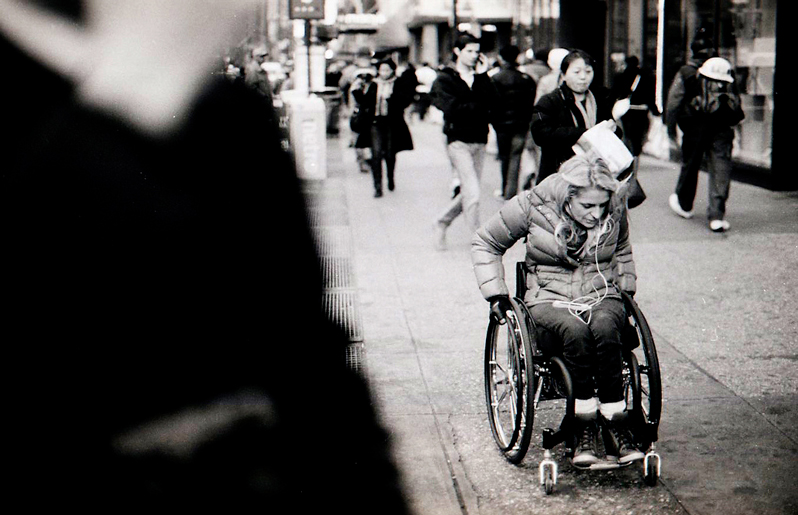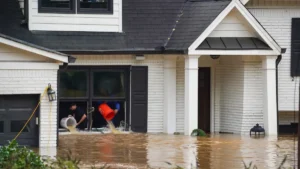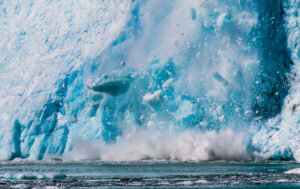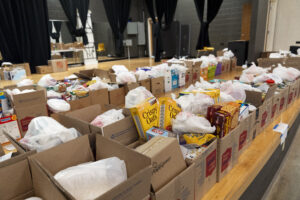The Disabled Are Probably the Most Vulnerable to Climate Change Effects
As an example: People with disabilities suffered a disproportionate number of fatalities during Hurricane Katrina, according to the National Council on Disability. Max Wei / CC BY-ND 2.0
Max Wei / CC BY-ND 2.0
By Robin Scher / AlterNet
We can easily picture how our lives are going to be affected by climate change: Extreme bouts of heat, rising sea levels and an increase in natural disasters are just some of the challenges we will face. Now imagine you’re disabled. If you’re able-bodied, that thought has probably never crossed your mind.
The National Council on Disability estimated that 155,000 people with disabilities (PWDs) were living in three of the Gulf Coast cities hardest hit by Hurricane Katrina back in 2005. Making up around 25 percent of the population, PWDs as a demographic were some of the hardest hit by the disaster, suffering a “disproportionate number of fatalities,” according to the NCD. (The NCD defines PWDs as people suffering from chronic health problems with functional impairments such as people who are blind, deaf, or use wheelchairs, canes, walkers, crutches, and service animals, as well as those with mental health needs.)
“People with disabilities are arguably the most vulnerable group to the effects of climate change,” wrote Gregor Worbling in an article for Media and Culture Journal, following the aftermath of Katrina. The problem, he explained, is twofold: PWDs “have the least capacity to adapt” to changes in their environment, and paradoxically, are “virtually ignored in discussion and planning about preparation.”
So how specifically will climate change affect disabled people?
Alex Ghenis is a policy and research specialist at the World Institute on Disability. For the past several years, Ghenis has conducted research into the effects climate change will have on the disabled. On his New Earth Disability blog, Ghenis list three major consequences of climate change for PWDs.
1. Severe storms: As Ghenis notes, “climate change will lead to more frequent and intense storms, such as powerful hurricanes or flood-causing downpours.” And as Hurricane Katrina has already shown us, disaster response is poorly equipped to accommodate PWDs when it comes to evacuation, shelter accessibility, and general medical care and personal support.
2. Heat waves: In a document prepared by the Centers for Disease Control and Prevention, an extreme heat event is loosely defined as “an extended period of time (several days or more) with unusually hot weather conditions that potentially can harm human health.” In the future, these sorts of events will increase in frequency and intensity, with “some areas projected to reach well over 100°F multiple times a year.” These events will have a particularly severe impact on PWDs. For one, explains Ghenis, “people with high-level spinal cord injuries have a lower ability to sweat when their bodies get warm, so they overheat easily.”
3. Migration: One of the biggest impacts of climate change will undoubtedly be the massive amount of dislocation caused by rising sea levels, water shortages and climate-related conflict. The International Organization for Migration estimates that this dislocation will create over 100,000 “climate migrants” by 2050 and many millions more who will be forced to leave their homes. People with disabilities may face a number of issues caused by this dislocation, including a lack of “accessible transportation or housing,” the inability to “keep or re-enroll in healthcare/social services,” a loss of “personal support networks,” or simply being “turned away at the border because of their disability,” writes Ghenis.
Underlying all of these consequences is the compounded issue of poverty. The International Disability and Development Consortium, a nonprofit research unit, compiled a 2015 report focused on this area of concern. Of the world’s 10 poorest countries, six were listed in the top 20 countries most at risk of extreme weather in 2015.
Mosharraf Hossain, a leader of the Bangladeshi office of Action on Disability and Development, explained the issue further in a BBC article. “There is a strong link between disability and poverty,” he said. He explained how this is tied to accessibility to health care and education, exacerbating the problem, which he described as a “systemic exclusion of disabled people, a circle of poverty.”
Acknowledging this exclusion is a good start toward addressing the problem. The next step is adaptation. The Intergovernmental Panel on Climate Change (IPCC) defines adaptation as an “adjustment in natural or human systems in response to actual or expected climatic stimuli or their effects,” describing how this can take place through “national or regional strategies as well as practical steps taken at the community level or by individuals.”
In a paper titled “The Science of Adaptation,” a group of researchers described the four basic steps involved in this process: 1) information development and awareness-raising; 2) planning and design; 3) implementation; and 4) monitoring and evaluation. Elizabeth Lockwood, a disability studies scholar expanded on these steps in a brief delivered at the United Nations’ The World We Want conference in 2014. Among Lockwood’s many recommendations, she listed the following key principles:
- Participation: “persons with disabilities must be active participants in planning, implementation and monitoring of humanitarian actions … and climate change policies; barriers to active participation must be removed and capacity-building programs enhanced.”
- Twin-track approach: PWDs must have full access to “relief operations, disaster risk reduction policies and climate change programs by removing barriers such as inaccessible communication and information, stigma and prejudice, physical access and, at the same time, addressing specific requirements through more individualized support for persons with multiple disabilities or high dependency needs.”
- Comprehensive accessibility and universal design: designing relief structures that support the needs of PWD.
- Build back better: The post-emergency re-construction period should use the opportunity to improve the quality of life of PWDs through “sound and inclusive investment and decision-making processes.”
If you’re reading this, you have already begun step one: awareness. Going forward there will be an increasing need for financial support, too. An international call for support known as the Kathmandu Declaration, which was made at the International Conference on Community Based Adaptation to Climate Change, held in Nepal in 2014, asked all those concerned to help contribute to a “radical shift in flows of finance to ensure the most vulnerable communities can adapt to a changing climate.”
In an email, Ghenis listed several other practical ways individuals can help disabled people prepare for the effects of climate change.
- Promote your newfound awareness among “both disability and climate activists/communities.” Ghenis continues that, “people with disabilities don’t know much about climate change or think about how it will affect them, and those working on climate change usually don’t think about disability issues. When we start the conversations, that’s when change can start to happen.”
- If you’re involved in local meetings around climate resilience/adaptation efforts, speak up about disability and the need for accessible adaptation. “There are also plenty of local Centers for Independent Living and other disability organizations nationwide: even telling a resilience planner to look one CIL up, could help,” says Ghenis.
- Subscribe to the New Earth Disability newsletter and help spread the word.
South African spiritual leader Desmond Tutu commented on the need to be more considerate of disabled people’s needs in a 2007/2008 Human Development Report. “We do not need climate change apartheid in adaptation,” he said. Now more than ever, it’s important to heed Tutu’s words.
Your support is crucial…With an uncertain future and a new administration casting doubt on press freedoms, the danger is clear: The truth is at risk.
Now is the time to give. Your tax-deductible support allows us to dig deeper, delivering fearless investigative reporting and analysis that exposes what’s really happening — without compromise.
Stand with our courageous journalists. Donate today to protect a free press, uphold democracy and unearth untold stories.









You need to be a supporter to comment.
There are currently no responses to this article.
Be the first to respond.